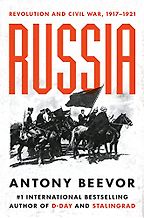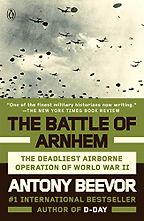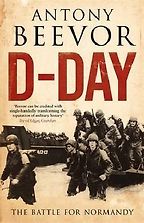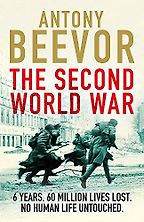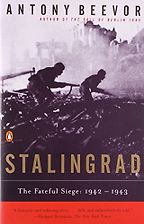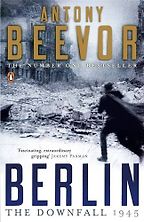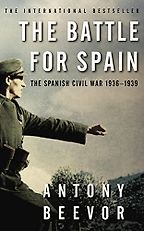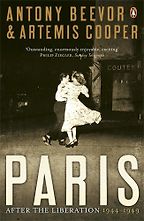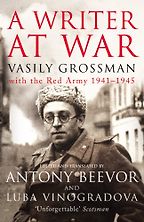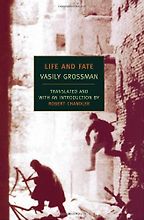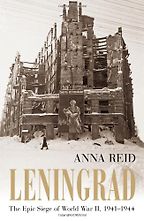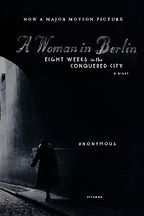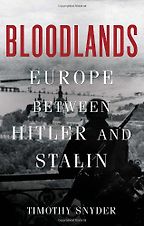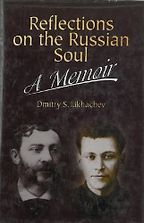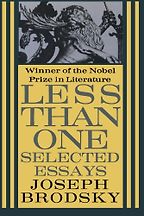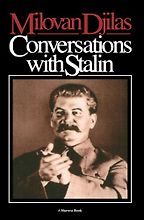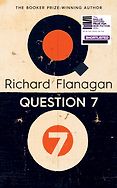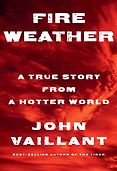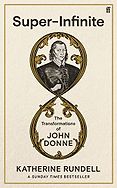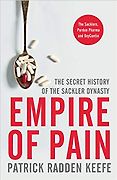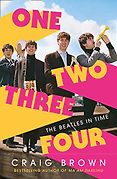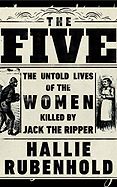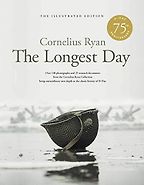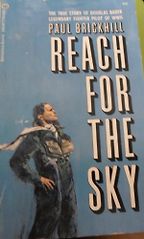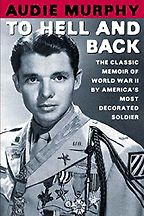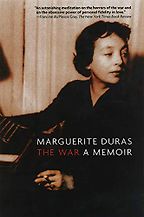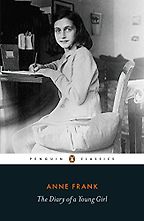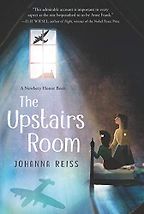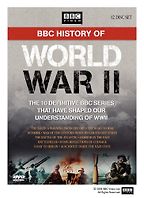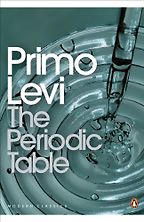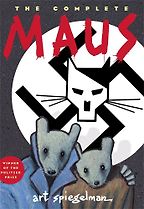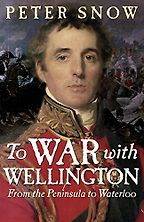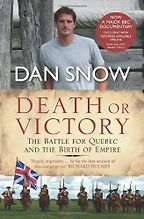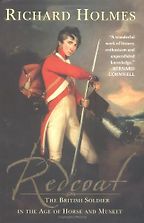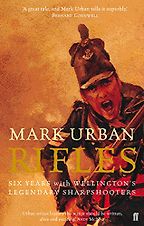
Books by Antony Beevor
Antony Beevor is an English military historian. He is a former officer with the 11th Hussars, who served in England and Germany for five years before resigning his commission. He has published several popular histories on the Second World War and the 20th century in general.
Russia: Revolution and Civil War 1917-1921
by Antony Beevor
The latest book by popular military historian Antony Beevor. One reviewer called it a 'masterpiece.' At just under 600 pages (22 hours for the audiobook), this isn't a short book, but Beevor's style is highly readable and draws you into the narrative.
D-Day: The Battle for Normandy
by Antony Beevor
It was a long time in coming: a new front to challenge Hitler from western Europe (to help the Russians fighting in the East) and much hinged on the success of the D-Day landings. D-Day: The Battle for Normandy, by military historian Antony Beevor, starts in Southwick House (near Portsmouth), where Eisenhower made the difficult decision to proceed on June 6th, 1944, in spite of the choppy weather. The book takes you through the landings on the Normandy beaches and also the terrible fighting that took place in the three months afterwards. If you are visiting the Normandy beaches, this is an ideal book to take along.
(You can also read our interview with Antony Beevor, about his favourite books on the Second World War.)
The Second World War
by Antony Beevor
British military historian Antony Beevor's single-volume history on the Second World War was published in 2012. It has been translated into 21 languages and was a bestseller in countries across the globe.
We interviewed Antony Beevor at the time of this book's release, about the best books on World War II.
Stalingrad
by Antony Beevor
🏆 Winner of the 1999 Wolfson History Prize
🏆 Winner of the 1999 Baillie Gifford Prize for Non-Fiction
Q. You are obviously famous for your book Stalingrad – can you explain why that was another key moment in the war?
Antony Beevor:
“Stalingrad was the psychological turning point of the war. It took place between 23 August 1942 to 2 February 1943 and it was the largest battle on the Eastern Front. Nazi Germany and their allies were fighting for control of the city of Stalingrad in southwest Russia. The geopolitical turning point of the war came slightly earlier, even though people didn’t really recognise it at the time. It was in December 1941, when the German armies were repulsed in front of Moscow and Hitler decided to declare war on the United States after Pearl Harbor. But Stalingrad was vital in its own particular way because the Red Army for the first time held its ground in the city, fighting in desperate circumstances. Also, its new commanders had the foresight to do what they felt was necessary rather than being terrified of being arrested for their actions, which was the case in the earlier part of the war.
Two Soviet generals, Georgy Zhukov and Aleksandr Vasilevsky, came up with this plan to encircle the whole of the Sixth Army, which was incredibly ambitious. The Germans saw that it was a possibility but they simply did not believe that the Red Army was capable of carrying it out. And the very fact of achieving that meant that the whole psychology of the war, not just in the Soviet Union but elsewhere as well, led to this belief that finally the Germans were beaten and the Allies could win. As far away as Chile the poet Pablo Neruda wrote his homenaje a Stalingrado – so Stalingrad had this tremendous effect on the resistance throughout the world. Stalingrad itself was a byword for courage and it was also a byword for suffering.
This is really what I was trying to do when I researched the Russian military archives. I wanted to find out the detail of what life was like for the soldiers and it was simply terrifying. They executed 13,000 of their own men during the course of the battle, which is something that we simply could not imagine.”
'Best Books on World War II' Five Books interview with Sir Antony Beevor
“He’s written a lot of good books and he’s rightly considered to be a preeminent historian of World War Two. For me, Stalingrad is by far his best book, and I’ve read nearly all of them. It’s magnificent and gripping. He took a story that hadn’t been told for quite a while and did a lot of important new research. There was that window when you could actually get into the archives, and he was able to get in. He just told a damn good story. It’s a wonderful story anyway, but he told it in a way that—it’s a cliché—but was hard to put down. It’s very easy to put down history books, especially big, long tomes. They’re not usually written for the benefit of the casual reader or to be page-turners. This was just really good storytelling. He followed the rhythms of a great narrative, the way the battle developed, the climax, the way that everything became very brutal and very tense. He did a superb job of tracking that narrative and making it really come to life.” Read more...
The best books on World War II Battles
Alex Kershaw, Historian
A Writer At War: Vasily Grossman with the Red Army 1941-1945
by Vasily Grossman, edited and translated by Antony Beevor and Lyuba Vinogradova
“These are the notes Grossman took while a war correspondent for the army newspaper, the Red Star. They are true first drafts of history – quick descriptions of what was going on around him as he sat in some truck or dugout, waiting for something to happen. He has a wonderful, cinematic eye, describing the look of burned-out villages, roads full of refugees, and so on. And he gets the voices of the soldiers and officers absolutely right. He famously never took notes as he interviewed people, but had such a good memory that in the evening he could go off into a corner and write it all down verbatim.” Read more...
The best books on The Siege of Leningrad
Anna Reid, Journalist
Interviews with Antony Beevor
The best books on World War II, recommended by Antony Beevor
The popular military historian Antony Beevor recommends some of his own favourite books about the Second World War.
Interviews where books by Antony Beevor were recommended
-
1
Russia at War
by Alexander Werth -

2
A Writer At War: Vasily Grossman with the Red Army 1941-1945
by Vasily Grossman, edited and translated by Antony Beevor and Lyuba Vinogradova -

3
Reflections on the Russian Soul
by Dmitry Likhachov -

4
Less Than One
by Joseph Brodsky -

5
Conversations with Stalin
by Milovan Djilas
The best books on The Siege of Leningrad, recommended by Anna Reid
The best books on The Siege of Leningrad, recommended by Anna Reid
Glorified by Russia, glossed over by the West, the siege of Leningrad is rarely seen for what it was – a tragic story of tremendous suffering and death. The author of Leningrad, Anna Reid, tells us what really happened there
-

1
Question 7
by Richard Flanagan -

2
Fire Weather: A True Story from a Hotter World
by John Vaillant -

3
Super-Infinite: The Transformations of John Donne
by Katherine Rundell -

4
Empire of Pain: The Secret History of the Sackler Dynasty
by Patrick Radden Keefe -

5
One Two Three Four: The Beatles in Time
by Craig Brown -

6
The Five: The Untold Lives of the Women Killed by Jack the Ripper
by Hallie Rubenhold
Baillie Gifford Prize-Winning Nonfiction Books
Baillie Gifford Prize-Winning Nonfiction Books
It's a prize that has been awarded annually since 1999 to a book that speaks to an important issue but is also highly readable. Below you'll find all the winners of the Baillie Gifford Prize, the UK's most prestigious non-fiction book award—from a gripping account of a turning point in World War II to a terrifying forest fire in an oil town in Canada.
-

1
Stalingrad
by Antony Beevor -

2
The Longest Day
by Cornelius Ryan -

3
Reach for the Sky: The Story of Douglas Bader, Hero of the Battle of Britain
by Paul Brickhill -

4
To Hell and Back: The Classic Memoir of World War II by America's Most Decorated Soldier
by Audie Murphy -

5
The War: A Memoir
by Marguerite Duras
The best books on World War II Battles, recommended by Alex Kershaw
The best books on World War II Battles, recommended by Alex Kershaw
In World War II human beings were tested over and over again, and that is part of what explains its enduring fascination, says bestselling historian Alex Kershaw. He recommends five books of great storytelling that immerse you in the drama, the heroism and the tragedy of World War II and also have the benefit of being relatively short.
VE Day Books: A Personal List, recommended by Sophie Roell
For the anniversary of Victory in Europe Day, Five Books editor Sophie Roell takes a personal tour of books about World War II and the Holocaust, and tells the story of how these events affected members of her family living across the continent.
The best books on World War II, recommended by Antony Beevor
The popular military historian Antony Beevor recommends some of his own favourite books about the Second World War.
The best books on Military History, recommended by Peter Snow
The veteran British journalist and broadcaster on his history reading list. Says Stalingrad was touch and go. Wellington was feared, respected and admired by his men, but he wasn’t loved.
